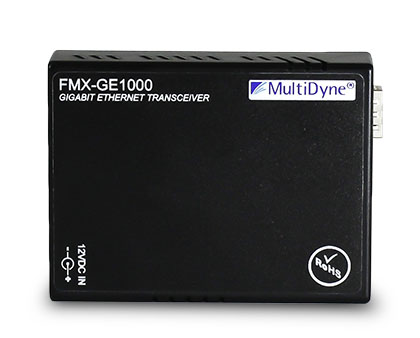
How a Fiber Converter Can Improve Your Network Performance
—Thu 04, 2025—
Businesses and organizations rely on fast, reliable, and efficient network connections. As the demand for high-speed data transmission continues to grow, traditional copper-based networks often struggle to keep up. This is where a fiber converter comes into play. A fiber converter is a powerful tool that bridges the gap between copper and fiber-optic networks, enhancing overall network performance.
What Is a Fiber Converter?
A fiber converter is a device that allows different types of network cables to communicate with one another. It converts electrical signals from copper-based Ethernet cables into optical signals that can travel over fiber-optic cables. This conversion enables networks to take advantage of fiber-optic technology without needing a complete overhaul of their existing infrastructure.
Key Benefits of Using a Fiber Converter
There are several benefits to choosing a fiber converter. These include:
Enhanced Speed and Bandwidth
Fiber-optic networks are significantly faster than traditional copper-based networks. A fiber converter enables organizations to integrate fiber technology into their systems, providing higher data transfer speeds and increased bandwidth capacity.
Longer Transmission Distances
Copper cables are limited in how far they can transmit data before signal degradation occurs. A fiber converter allows data to travel over much longer distances without loss, making it ideal for large office spaces, industrial facilities, and data centers.
Improved Signal Quality
Unlike copper cables, which can suffer from electromagnetic interference (EMI) and signal degradation, fiber-optic cables provide a cleaner and more stable connection. A fiber converter ensures that data is transmitted with minimal loss and distortion.
Cost-Effective Network Expansion
Upgrading an entire network to fiber-optic technology can be expensive. With a fiber converter, businesses can gradually integrate fiber connections into their existing setup without a complete system overhaul. This makes it a cost-effective solution for improving network performance.
Increased Security
Fiber-optic networks are harder to tap into compared to traditional copper networks. Using a fiber converter adds an extra layer of security, making it more difficult for cybercriminals to intercept sensitive data.
Choosing the Right Fiber Converter
When selecting a fiber converter, it’s important to consider factors such as speed, compatibility, and distance requirements. MultiDyne offers a range of high-performance fiber solutions, including the NanoBriX Series and the FMX-GE1000, which are designed to optimize network efficiency. Some of the ways fiber converters can be used include:
-
Enterprise Networks: Businesses use fiber converters to improve connectivity between different office locations.
-
Broadcasting & Media: High-speed data transfer is essential for live streaming and video production.
-
Data Centers: Large-scale data storage facilities rely on fiber converters to maintain fast and stable connections.
-
Industrial Automation: Manufacturing plants use fiber technology to support real-time communication between machines.
Our team at MultiDyne can help you select the right option for your specific needs.
Contact Us Today
Enhancing your network performance has never been easier with a high-quality fiber converter. A reliable fiber converter ensures fast, stable, and efficient data transmission for your business or project. MultiDyne offers industry-leading solutions tailored to your specific needs. Call us today at 877-685-8439 to learn more about how a fiber converter can transform your network!
